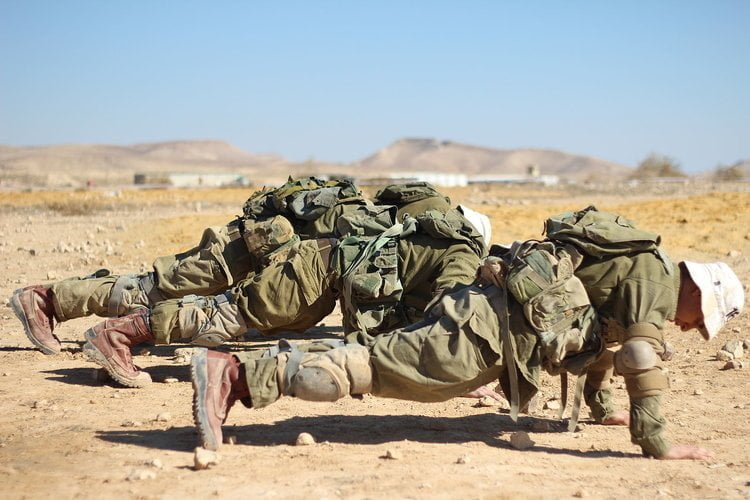How to get into the special forces

By Logan Hepner
Many people have asked me over the years how to train to be in the special forces. They will ask, “I want to try out for the special forces. What sort of cross training and weight training should I do to prepare myself?” I usually respond with, “You are asking the wrong question.”
If a person really wants to try out for and succeed in the special forces, the mentality is much more important than if you can run a 6-7-minute mile or do 20 pull ups. This does not mean you should not be in shape. Current requirements are to pass the physical fitness test of a 2-mile run in less than 14 minutes, 100 situps in 2 minutes, and 100 pushups in 2 minutes. If you can’t do this, I would start working out.
I assume that a serious person is already physically fit and can pass the entrance requirements. The question a person needs to ask themselves is if they have the mental fortitude to succeed. Do you ever give up on tasks? Do you get easily distracted? Do you complain when things aren’t going your way or seem unfair? If you answered yes to any of these questions, then you won’t make it.

Everyone breaks in special forces training. The training is designed to break you, no matter how physically fit you are. The training messes with your mind and makes you regret every minute. The trainers want you to quit of your own volition, since it makes the multiple selection review cuts easier. If there are 25 spots and 75 people at the starting line, the training personnel are very well motivated to get that number down to 25 by the time the phase is over.
With all of this build up, let me tell you a story from my experience in special forces training. My training platoon was on an exercise in the Negev desert. After dinner consisting of a slice of bread with a quarter can of tuna and some corn, we were ordered to crawl in a snake loop around our supply tarp. This went on for about an hour and much like a traffic jam, you don’t move much. There is a constant stop and go as you wait for the person in front of you to crawl half a meter, move, and then continue to wait. The Sergeant was unhappy with our collective laziness, so we were ordered to crawl up a nearby hill consisting of jagged rocks and thorn bushes. The first one up would get more food and a well-deserved rest.
I wasn’t the first to the top, but very close. The Lt. was up there with no food. “This is where our ancestors lived. You are continuing the tradition of protecting this land. Look at the view,” he said. The view was a dark, bleak, desert landscape. After a few of us had gathered on the top of the hill, our Lt. said, “Every part of the land is special, keep crawling to that hill and we will see the view.”

have no idea how long we crawled over jagged rocks and thorn bushes that night, nor how many hills we went up and down. However, we did eventually roll out our sleeping bags and sleep under the stars. Our sleep was unfortunately interrupted by the Sergeant throwing several gas grenades and shooting blanks into the air, shouting that we were under attack.
So how do you make it into and succeed in the special forces? You must have the mental fortitude to endure my example story, day after day, and practice the 3Ps:
Patience, persistence, and perseverance.
Patience: Remember your goals and wait through the guard duties, down time, and blank spaces where there is nothing happening.
Persistence: Continue to work toward your goals and show up ready to do what is needed. Every day is different and every challenge has a unique set of taxing variables. Show up with the same level of commitment regardless of the situation.
Perseverance: You will fail. You will fall flat on your face. What matters is how you pick yourself up, learn from your failure, and apply it to the next situation.
Part 1 of 2
Part 2: How to apply the special forces mentality in the civilian workplace
About the author:
Logan Hepner is a former member of the IDF’s Duvdevan unit, A counter-terror special forces unit tasked with undercover operations. He joined the IDF in 2006 and served until 2009, during which he fought in the first Gaza war in 2008. During his service he participated in multiple counter-terrorism operations that remain secret to this day. After his service, Logan moved to Michigan and began instruction with Ron Grobman in 2013. He became an instructor of Krav Maga in 2014.
